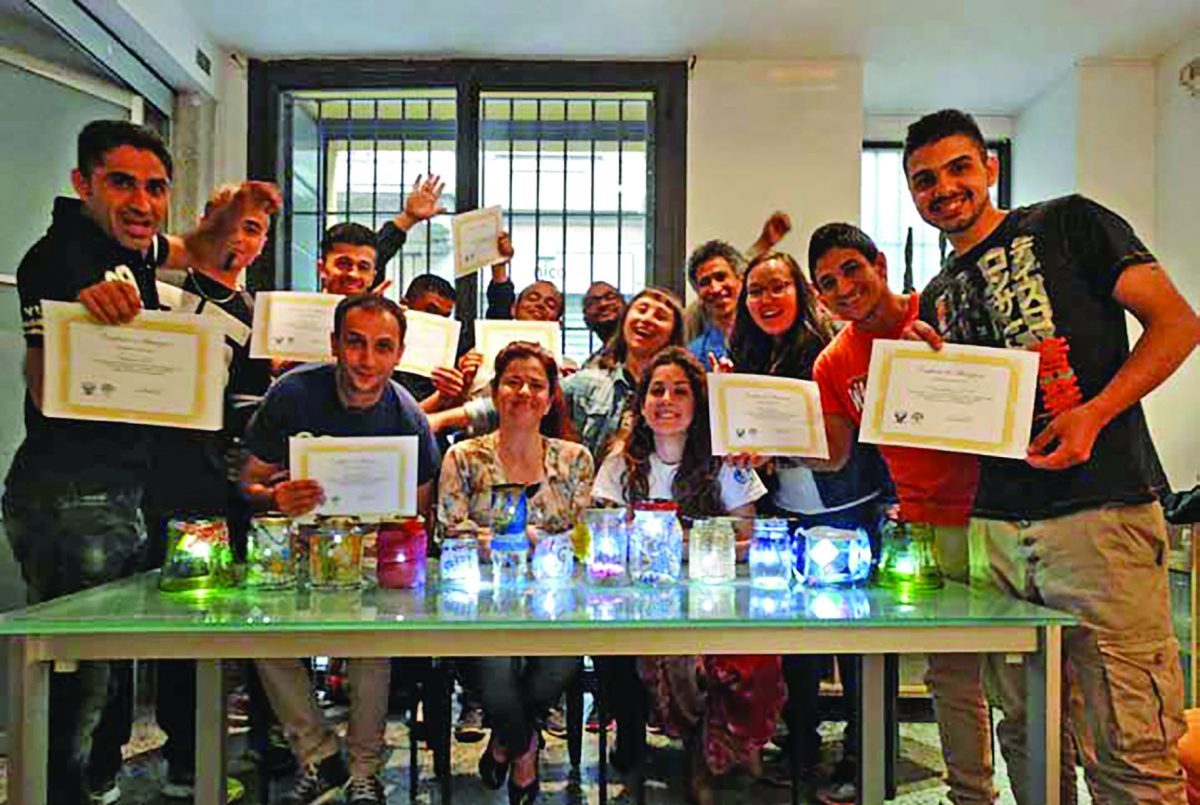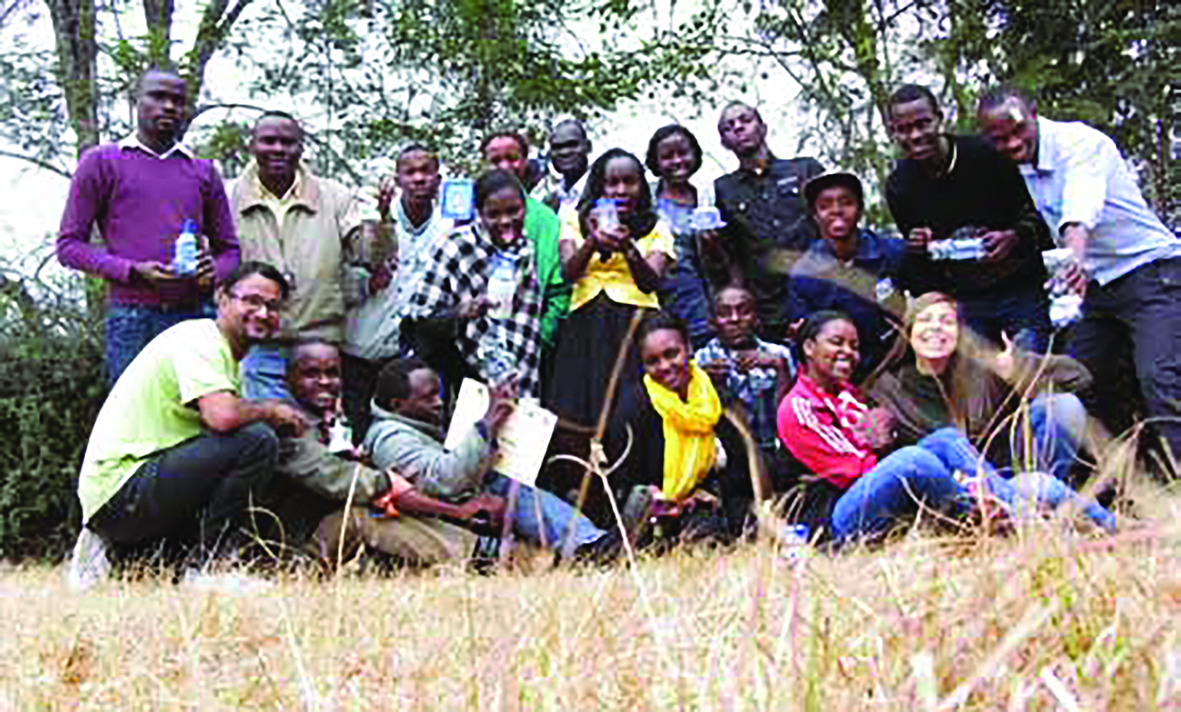Working in Refugee Camps
Upadhyay’s work has taken him to many war-torn and refugee areas in Africa and South America. “At nights, it is quite dangerous for women and children to step out without light. They really need affordable solutions. When you train them to build it themselves, you can see an immediate change. They feel empowered!”

In the age of start-ups, societal issues directly affecting development in rural India are now being tackled with clean-tech startups from around the country
In a small school tucked away in Bihar, the ringing of a bell announces the beginning of classes. As students scramble to the classroom, you can see them carrying used tin cans, cracked glass jars, wires of all sorts and a motley of reusable. At the teacher’s call for silence, they squeeze against each other and excitedly set to work, expertly assembling their reusable materials, like Lego blocks, to make solar lamps. This scene, set in a far-flung, unelectrified village in the state of Bihar, is hard to believe. Yet, the children proudly present their lamps to the pedagogue, thrilled that they get to take it home.

“This is what we aim to do at LEDsafari Innovation – decentralize solar energy and make technology accessible to all corners of the world by innovatively breaking it down to the simplest form of tin cans and wires, which can be assembled even by children,” explains Govinda Upadhyay, Founder & CEO of the clean-tech social start-up. “The name has been borrowed from Swahili language (spoken in East Africa) and means a journey of light. We teach people how to create their own source of light, and then they teach it to others – this way, the whole world gets illuminated and empowered.” Lighting dark corners hailing from Madanpur, a small village in Arah district of Bihar, that was unelectrified at the time he was growing up, Upadhyay realised the importance of energy early on. “It was clear to me that, if we want to bring clean energy, it has to be a bottom-up approach where technology needs to be democratised. This way, we can bring a change at the village level,” says the sustainable energy expert, who featured in the Forbes 30 under 30 in 2016. “With this goal, I started LEDsafari Innovation, with multi-level missions of training the locals in the usage of clean energy, thereby generating employment and using technology to fight climate change,” adds Upadhyay.
Govinda Upadhyay has been merited Asia 21 Young Leaders 2016, Asia-Pacific’s foremost network of diverse change-makers who are dedicated to making the world better
Reaching the remotest
With a global shift towards reducing carbon footprints, India is at the forefront, aiming for 175 GW Renewable Energy by 2022, as PM Narendra Modi reminded the world at the 2019 United Nations Climate Action Summit in New York. The likes of Tata Power and Rockerfeller Foundation are investing heavily in this burgeoning space and have announced that they will provide clean power to nearly 5 million households, by setting up 10,000 renewable micro-grids. In such a scenario, the role of LEDsafari Innovation becomes instrumental. “The biggest problem with the effectiveness of micro-grids or other solar assets in remote areas is monitoring them, which is very expensive and cumbersome,” says Upadhyay. “There is an immediate need to integrate these grids with solutions powered by Artificial Intelligence and IoT (Internet of Things), so the lifespan of the solar assets can be increased.”
For this purpose, LEDsafari has developed an AI-enabled hardware device, HelioHealth sensor, a costeffective solution that helps monitor solar rooftops and mini/micro-grids responsible for clean energy power supply; tracks output from solar panels; reports remotely to maintenance service providers; analyses the data, and makes recommendations when corrective action is needed, improving the output by 20 per cent.
LEDsafari Innovation is paving the way for integrated and comprehensive solutions that will give future generations a fighting chance against the dominoes of climate change
Generating Employment
LEDsafari Innovation, has been actively involved in training local youth to effectively maintain micro grids and solar panels. “Locals are the key users of our technology, who can be trained as micro-entrepreneurs to maintain the electrification process in a sustainable manner.” “Foremost, we identify locations where there is little access to clean energy and lesser jobs. We train people on how technology can be utilised to improve their livelihood. This can range from teaching them how to design a battery system to helping them learn how solar energy can be harnessed and utilised in solar panels, bulbs, lamps, etc. This way we help build up the economic activities of the area.”
With an eclectic team of nationals from across the world, all of whom are committed to utilising technology for a greener future, LEDsafari Innovation is paving the way for integrated and comprehensive solutions that will give future generations a fighting chance against the dominoes of climate change.